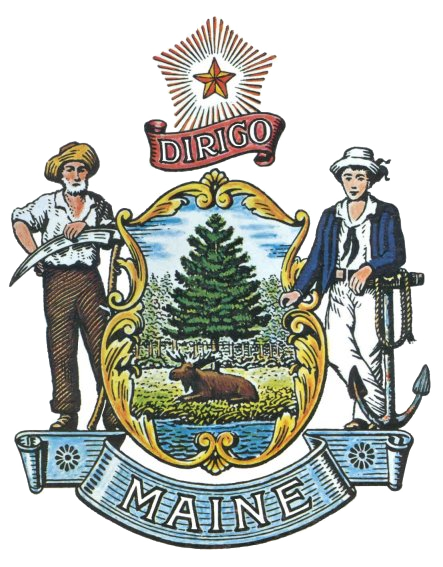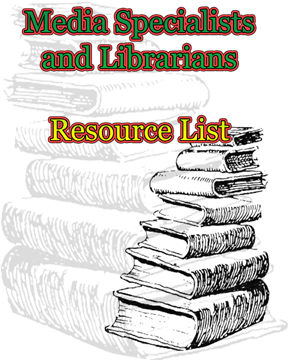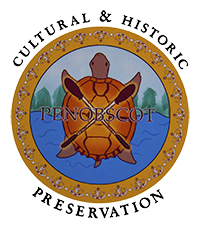 Sec. 1. 20-A MRSA §4706, as amended by PL 1991, c. 655, §4, is further amended to read:
Sec. 1. 20-A MRSA §4706, as amended by PL 1991, c. 655, §4, is further amended to read:
§4706. Instruction in American history, Maine studies and Maine
Native American history
The following subjects shall be arerequired.
1. American history. American history and civil government, including the Constitution of the United States, the Declaration of Independence, the importance of voting and the privileges and responsibilities of citizenship, shall must be taught in and required for graduation from all elementary and secondary schools, both public and private.
2. Maine studies. A course in Maine history, including the Constitution of Maine, Maine geography and environment and the natural, industrial and economic resources of Maine and Maine's cultural and ethnic heritage, must be taught in at least one grade from grade 6 to grade 8, in all schools, both public and private. These concepts must be integrated into the curriculum in grades 9 to 12.
3. Maine Native American history. Maine Native American history and culture must be taught in all elementary and secondary schools, both public and private.
4. Rulemaking. The commissioner shall adopt or amend rules to implement this section. Rules adopted pursuant to this section are routine technical rules as defined in Title 5, chapter 375, subchapter II-A.
Sec. 2. 20-A MRSA §6209, first ¶, as amended by PL 1999, c. 75, §5, is further amended to read:
The department in consultation with the state board shall establish and implement a comprehensive, statewide system of learning results, referred to in this section as the "system," no later than the 2002-03 school year. The system, based broadly upon guiding principles set forth in this section, must establish high academic standards at all grade levels in the areas of math; English; science and technology; social studies, including history, economics and civics; career preparation; visual and performing arts; health and physical education; and foreign languages. Maine Native American history and culture must be included in, but is not limited to, the areas of social studies and modern and classical languages. Only students in a public school or a private school approved by the State pursuant to section 2901 and approved for the receipt of public funds by private secondary schools pursuant to section 2951 are required to participate in the system of learning results. The commissioner shall develop accommodation provisions for instances where course content conflicts with sincerely held religious beliefs and practices of a student's parent or guardian. The system must be adopted to accommodate exceptional students as defined in section 7001, subsection 2.
Sec. 3. 20-A MRSA §6209, sub-§3 is enacted to read:
3. Rulemaking. The commissioner shall adopt or amend rules to implement this section. Rules adopted pursuant to this section are routine technical rules as defined by Title 5, chapter 375, subchapter II-A. On or before September 1, 2003, the commissioner shall adopt rules to incorporate Maine Native American history and culture into the standards and performance indicators of the 8 content standard subject areas that comprise the system. In adopting these rules, the commissioner shall amend the standards and performance indicators in the content standard subject areas of social studies under the headings of civics and government, history, geography and economics that address the following topics:
A. Maine tribal governments and political systems, and their relationship with local, state, national and international governments;
B. Maine Native American cultural systems and the experience of Maine tribal people throughout history;
C. Maine Native American territories; and
D. Maine Native American economic systems.
Sec. 4. Commission established. The Commission to Study the Inclusion of Maine Native American History and Culture in Maine's System of Learning Results, referred to in this section as the "commission," is established to assist school administrative units and educators in the exploration of a wide range of curricular programs and options that include Maine Native American history and culture in a manner that is consistent with the guiding principles of the system of learning results established in the Maine Revised Statutes, Title 20-A, section 6209. The curricular programs and options must be developed so that the inclusion of Maine Native American history and culture coincides with the full implementation of the system of learning results for the 2002-03 school year.
1. Membership. The commission consists of the following 7 members:
A. Four members representing the tribal chiefs and governors of the Passamaquoddy Tribe, the Penobscot Nation, the Houlton Band of Maliseets and the Aroostook Band of Micmacs or the tribal chiefs' or governors' designees;
B. The Commissioner of Education or the commissioner's designee;
C. The Chair of the State Board of Education or the chair's designee; and
D. The Chancellor of the University of Maine System or the chancellor's designee.
No later than 30 days following the effective date of this Act, the Commissioner of Education or the commissioner's designee shall call and convene the first meeting of the commission. The Commissioner of Education shall select a chair from among the commission members prior to the first commission meeting.
2. Duties. The commission shall report to the Commissioner of Education for implementation of its findings on:
A. Curricular programs and options that are appropriate to assist school administrative units and educators in the State to include Maine Native American history and culture into the system of learning results; and
B. The necessary professional development, training and technical assistance that must be provided to assist school administrative units and educators in the State in implementing Maine Native American history and culture into the system of learning results.
3. Staff assistance and budget. The Department of Education shall provide staffing assistance and research services to the commission. The department may elect to provide members of the commission with per diem and expenses for their participation in commission meetings.
4. Implementation. The recommendations of the commission must be submitted to the Commissioner of Education no later than June 1, 2003 and must be implemented no later than September 1, 2003.
SUMMARY
This bill requires that Maine Native American history and culture be taught in all elementary and secondary schools and requires the Department of Education to include Maine Native American history and culture in the system of learning results. This bill establishes a commission to investigate and recommend how the Department of Education will accomplish this task.
This is a collection of voices and passions. As you explore these units and the accompanying materials, you will undoubtedly notice variety: variety in voice, in format, even in font! We have left these variations purposely.
Our vision for this project was to bring together Penobscot Nation cultural specialists and educational specialists. Our hope was that this teaming would generate rich, user-friendly material that could be used by educators throughout Maine. The voice of the Wabanaki people has been kept silent for far too long, and we hope that this project has given that voice a home in classrooms across the state.
The units are as varied as the voices that created them. Our intent was not to create a ‘cookbook’ of lessons for you, though they may surely be used as such. We hope the resources and lesson ideas allow you to inject aspects of Wabanaki culture into your existing curriculum. You may choose to use the lessons as they were piloted and documented in this work, or you may choose to add some of these materials during the course of an entire school year where you feel appropriate.
Regardless of how you use these materials, trust them. They are culturally appropriate and full of the fascinating aspects of Wabanaki culture that teachers have been trying to access for years. They have been piloted and ‘tweaked,’ and you should find them user-friendly as a result of our efforts. Enjoy the variety and note the power of collaboration!
Acknowledgements
This project was carried out by the Penobscot Nation Cultural and Historic Preservation Department, Indian Island School, and the Old Town School Department and funded by the Administration for Native Americans (ANA). These twelve units were developed by teams consisting of Project Director, Teachers, Tribal Resource Specialists, Educational Resources Coordinator, Curriculum Specialist, and members of an Educational Advisory Board.
Project Director
Bonnie D. Newsom
Director of Cultural and Historic Preservation Department
Teachers
Lee Francis Indian Island School
Julia Sockbeson Indian Island School
Kerri Doyle Old Town School System
Lynn Lowell Old Town School System
Tribal Resource Specialists
Pam Cunningham Penobscot
Frederick Nicolar Jr. Penobscot
Christopher Sockalexis Penobscot
Educational Resources Coordinator
James Eric Francis
Penobscot Nation Tribal Historian
Curriculum Specialist
Connie Manter
Manter Educational Services
Educational Advisory Board
Chris Avila
Carol Dana
Maria Girouard
Jennifer Neptune
Judy Pusey
Maureen Smith
Marie Yarborough
Clerical
Debbie Kondilis
Others
Special thanks to Penobscot Chief and Council, Directors of the Penobscot Nation, Penobscot Nation Language Department, Wabanaki Studies Commission, Wabanaki Center, Abbe Museum, Hudson Museum, Indian Island School Board, and Old Town School Board, Angie Reed, Binke Wang, Paul Smith, and all the employees of the Penobscot Nation, Indian Island School, and Old Town School System.
 Read a sampling of stories and plays, including Gluskabe, and then learn about his importance to the Wabanaki people. This unit is designed to be an introduction to the complex subject of Oral Traditions and Wabanaki Legends.
Read a sampling of stories and plays, including Gluskabe, and then learn about his importance to the Wabanaki people. This unit is designed to be an introduction to the complex subject of Oral Traditions and Wabanaki Legends.
 Penobscot Nation Cultural and Historic Preservation Department and Old Town Elementary School Librarian Lynn Lowell Mayer developed a Resource List to help teachers and students choose the proper tool to teach about Maine Native Americans. This list is a work in progress and will be occasionally updated.
Penobscot Nation Cultural and Historic Preservation Department and Old Town Elementary School Librarian Lynn Lowell Mayer developed a Resource List to help teachers and students choose the proper tool to teach about Maine Native Americans. This list is a work in progress and will be occasionally updated.
 This unit explores the rich tradition of Maine Indian basket-making and is divided into two sections: The Story of My Basket, which outlines the steps involved in making a basket, and The Economics of Basket-making, in which students learn why it takes more than one person to make a basket.
This unit explores the rich tradition of Maine Indian basket-making and is divided into two sections: The Story of My Basket, which outlines the steps involved in making a basket, and The Economics of Basket-making, in which students learn why it takes more than one person to make a basket.
